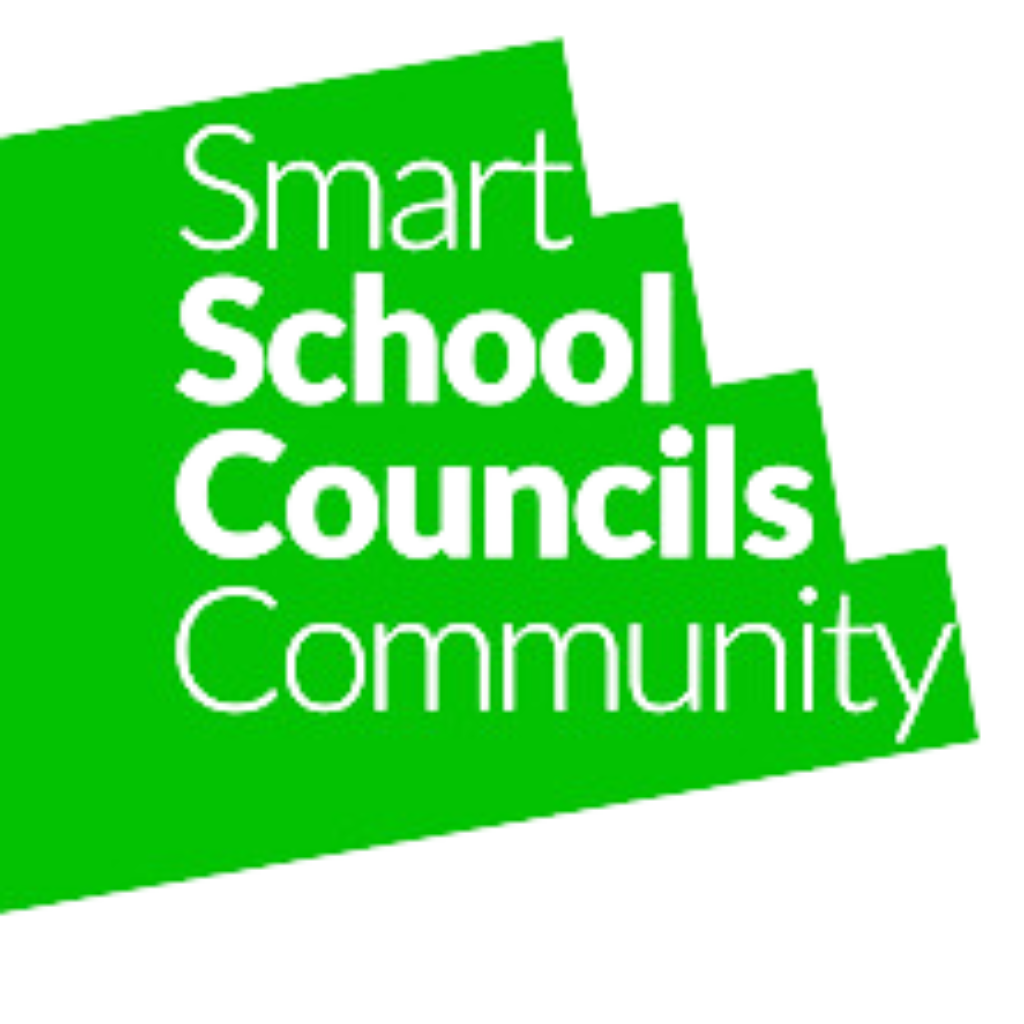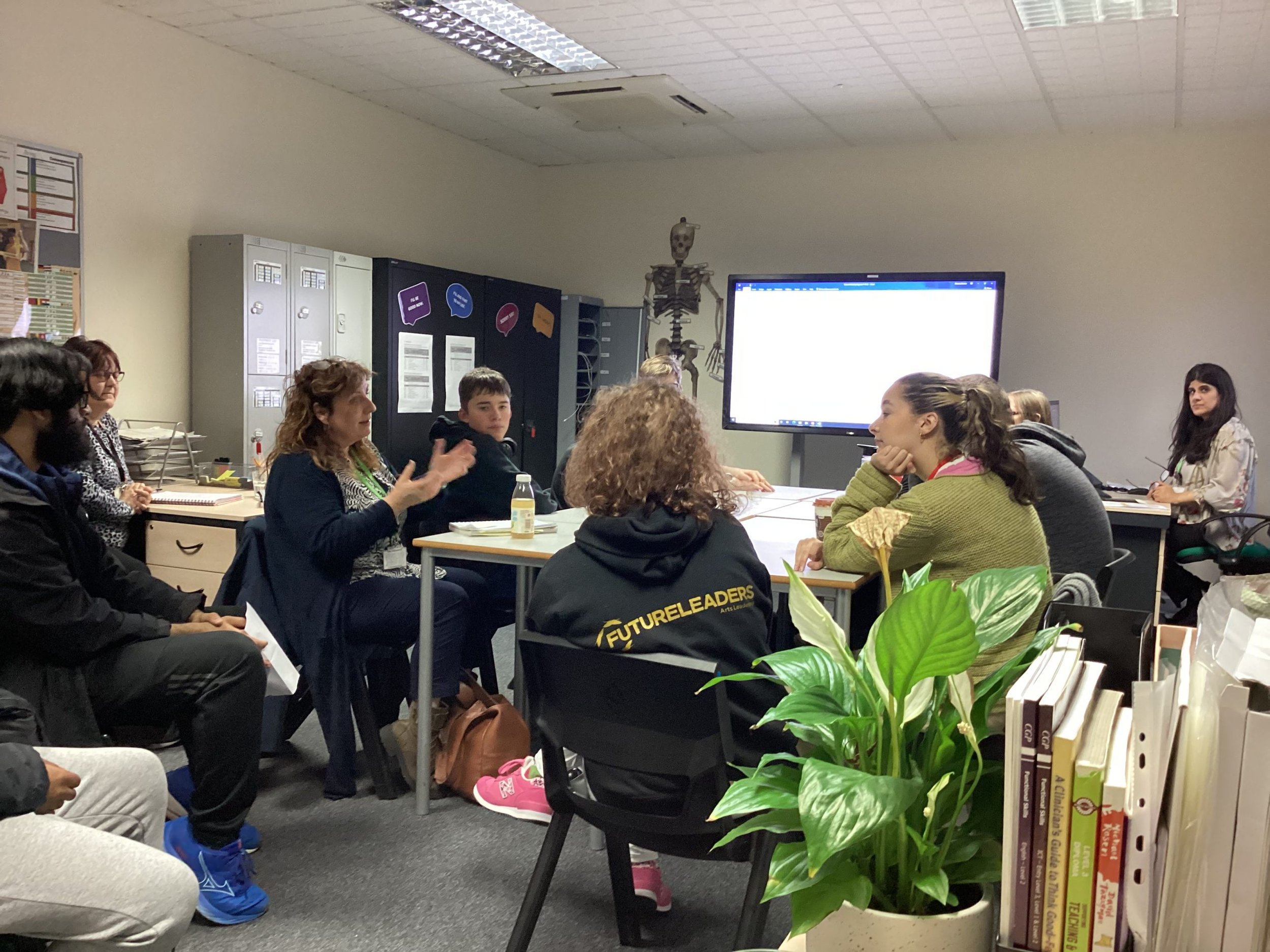What is a School Council? Rethinking the traditional model
A school council is like the beating heart of a school, where pupils come together to make a real difference. It's not just any group; it's a formal assembly of students who represent their fellow classmates. These enthusiastic young minds take on the role of liaising with the headteacher and staff, working tirelessly to discuss school matters that affect everyone. Think of it as a brilliant way of amplifying Pupil Voice in your school.
But here's the twist – it's time to challenge the traditional model. While school councils have been the cornerstone of student participation, our evolving understanding of inclusivity and representation calls for a fresh perspective. In this exploration, we'll dive deeper into the world of school councils, uncovering their vital role in schools while paving the way for a thought-provoking journey that questions conventional norms.
With input from our collaboration with the Institute of Education, we’re pleased to share our thoughts with you.
Elections are the name of the game, where students are chosen to be the voice of their peers, advocating for their needs, ideas, and visions. But a "school council" isn't just one thing; it encompasses various school-based groups, from student forums to youth parliaments. Their mission? To shape the way the school operates and spearhead projects that foster learning, development, and community spirit. This includes organizing charity events, representing the school at external gatherings, and championing eco-friendly initiatives.
One thing to note is that school councils are like clockwork; they're typically elected annually by the students themselves. And what exactly does a school council do? Well, quite a lot, actually:
They gather around with a teacher to tackle school-related puzzles, whether it's about lunch menus, student behavior, or brainstorming ideas for exciting fundraisers.
They roll up their sleeves to bring those agreed-upon ideas to life, whether that involves planning vibrant discos, crafting engaging newspaper articles, or meeting with the school's catering staff.
And when it comes to organization, every class usually nominates two representatives to join the school council. These dedicated individuals then convene to choose the council's key officers, including the Chair, Secretary, and Treasurer.
In this exploration, we'll dive deeper into the world of school councils, uncovering their vital role in schools and paving the way for a thought-provoking journey that challenges traditional norms.
Defining a School Council
A school council is a formal group of students chosen to represent their peers in discussions with school administrators, teachers, and staff. Its primary purpose is to provide students with a platform for expressing their views and concerns, thereby influencing school policies, decision-making, and overall school life.
The Role of a School Council
School Council Representation and Its Challenges
While school councils play a crucial role in representing students' voices, it's important to acknowledge that challenges exist, and some critics argue that they can sometimes be perceived as elitist rather than truly representative.
The Representation of School Councils
Empowering Students: One of the fundamental goals of a school council is to empower students to actively participate in shaping their educational experience. By electing representatives to voice their concerns and ideas, the intention is to create a more inclusive and democratic school environment.
Fostering Leadership Skills: School councils provide a unique opportunity for students to develop leadership skills, learn about governance, and practice effective communication. These skills can be invaluable in their future endeavors.
Tracing the Origins of School Councils
The history of school councils stretches back over four decades, but recent times have seen a significant shift. With the widespread inclusion of citizenship education in curricula, the establishment of school councils has gained momentum. While the government acknowledges the importance of school councils, it's noteworthy that they are not compulsory in all schools.
However, there's an evolving perspective. Many are beginning to question whether there's a better way – a more inclusive and effective approach. In the coming sections, we'll delve into this growing sentiment, exploring innovative alternatives to traditional school councils.
Additionally, in some countries, such as Ireland, Germany, Spain, and Sweden, legislation mandates the presence of school councils in secondary schools, highlighting the global recognition of their significance.
What can a school council get involved in?
School councils play a vital role in addressing various topics and issues within the school community. Here is a list of topics that school councils commonly get involved in:
School council ideas to improve school
School Policies: Reviewing and providing input on school policies, such as behavior, dress code, and attendance policies.
Curriculum and Courses: Discussing changes to the curriculum, suggesting new courses, or providing feedback on existing ones.
Student Wellbeing: Addressing issues related to student mental health, bullying, and well-being programs.
Facility Improvements: Identifying and advocating for improvements to school facilities, including classrooms, playgrounds, and sports facilities.
Fundraising and Budgeting: Planning and participating in fundraising activities to support school projects and discussing the allocation of school budgets.
Safety and Security: Addressing concerns related to school safety.
Environmental Initiatives: Promoting eco-friendly practices and advocating for sustainability efforts within the school.
Community Engagement: Encouraging community involvement in school activities and fostering positive relationships with parents and local organisations.
Student Events: Organising and planning school events such as dances, talent shows, and cultural celebrations.
Student Services: Providing input on student support services.
Health and Nutrition: Advocating for healthier school lunches, discussing nutrition education, and promoting physical fitness
Inclusivity and Diversity: Promoting inclusivity and diversity within the school community, including celebrating different cultures and backgrounds.
Technology: Discussing the use of technology in education, including the implementation of digital resources and online learning.
Student Awards and Recognition: Recognising student achievements and contributions through awards and ceremonies.
Teacher and Staff Support: Discussing ways to support teachers and staff, such as professional development opportunities and wellness programs.
Extracurricular Activities: Planning and supporting extracurricular clubs, sports teams, and activities.
Parent Involvement: Encouraging parental involvement in school activities and fostering communication between parents and teachers.
Anti-Bullying Initiatives: Developing strategies to prevent and address bullying in the school environment
Cultural Awareness: Promoting cultural awareness and education through events, workshops, and curriculum enhancements.
Student Feedback: Collecting and analysing feedback from students about their educational experience and making improvements accordingly.
Transition Programs: Supporting students transitioning from year or stage or from primary to secondary school.
Charitable Activities: Organizing and participating in charitable and community service projects.
School Traditions: Discussing and preserving school traditions and rituals.
These topics encompass a wide range of areas that impact students' educational experiences and overall well-being. School councils play a critical role in ensuring that the voices of students are heard and considered in decisions related to these issues.
Key Ingredients for a Successful School Council
A successful school council embodies a few key principles that ensure it effectively represents the voices of all students and drives positive change within the school environment. These principles include:
1. Inclusive Participation:
The foundation of a thriving school council is the active involvement of all students, regardless of their background or abilities.
2. Clear Structure:
A well-defined structure, complete with roles, responsibilities, and processes, provides a framework for efficient decision-making and accountability.
3. Regular Meetings:
Consistency is key. A successful school council conducts regular meetings, offering a structured platform for open discussions and productive decision-making.
4. Genuine Student Leadership:
Central to the council's success is its genuine leadership by pupils, allowing them to take ownership of their ideas and initiatives.
5. Teacher-Friendly Operations:
Recognizing that teachers have demanding schedules, a successful school council streamlines its processes to make it easy to run, ensuring that it doesn't add undue burden to educators.
These five elements, with their emphasis on inclusive participation, clear structure, regular meetings, genuine student leadership, and teacher-friendly operations, collectively contribute to a school council's effectiveness as a platform for student representation and action.
The big challenge with schoool councils
Small number of voices
Critics argue that school councils may sometimes lack diversity, potentially excluding the voices of underrepresented or marginalised groups. In some cases, elections may inadvertently favor more outgoing or academically successful students, leaving others feeling left out.
Involvement from more marginalised pupils
There's a concern that students from privileged backgrounds may have more influence within school councils, given their familiarity with such processes or their ability to campaign effectively.
The link between educational attainment and invovlement in school councils. Isabel Kempner, a researcher at the EEF, tackles the crucial question of how democratic school councils are and the implications for UK schools.
Should We Stop Doing School Councils? In this thought-provoking blog post, a Professor of Education at the Institute of Education suggests that if school councils only involve more confident students, it might be time to reconsider their purpose.
Who should get to learn the skills by being on a school council? Is it okay that it’s a small group of the more advantaged students?
Addressing the challenge
To mitigate perceptions of a lack of involvement and ensure that school councils truly represent the entire student body, it's important to:
Promote Inclusivity: Encourage the participation of students from diverse backgrounds and abilities. Implement strategies to ensure that all voices are heard, including those who may be less confident or outspoken.
Transparent Processes: Maintain transparency in the election and decision-making processes, making sure they are accessible and fair for all students.
Training and Support: Provide training and support for school council members to enhance their understanding of inclusivity, diversity, and the importance of representing all students.
Embracing Change: Smart School Councils
In the educational landscape, Smart School Councils is a charity that is leading the way in redefining school councils for the better. We believe in challenging traditional norms and promoting inclusivity in every aspect.
With our 500 schools members, we’re changing the way how pupils are involved.
Smart School Councils -WHat does it look like when everyone’s voice is involved?
The Real Power of Student Voice: A Teacher's Experience with Smart School Councils Discover how Smart School Councils can transform school culture through the firsthand account of a teacher who witnessed its impact.
Smart School Councils - Award-Winning Citizenship Organization
In 2023, Smart School Councils was honored as the Association for Citizenship Teaching's 'Organisation of the Year.' This recognition highlights our commitment to advancing democratic participation and citizenship education.Learn More About Our Award
By embracing innovation, fostering inclusivity, and redefining the role of school councils, Smart School Councils continues to shape the future of student engagement and representation.
Conclusion
In conclusion, school councils hold immense potential as vehicles for student empowerment and democratic participation. However, to fully realize this potential, we must address the challenges of perceived elitism and exclusivity. By promoting inclusivity, transparent processes, and training for council members, we can create school councils that authentically represent all students. Smart School Councils serves as a beacon of innovation and inclusivity in this journey, offering valuable insights and resources to empower schools and students.
Empower your school council to become a true advocate for every student's voice. Together, we can create a more inclusive and democratic educational experience for all.





